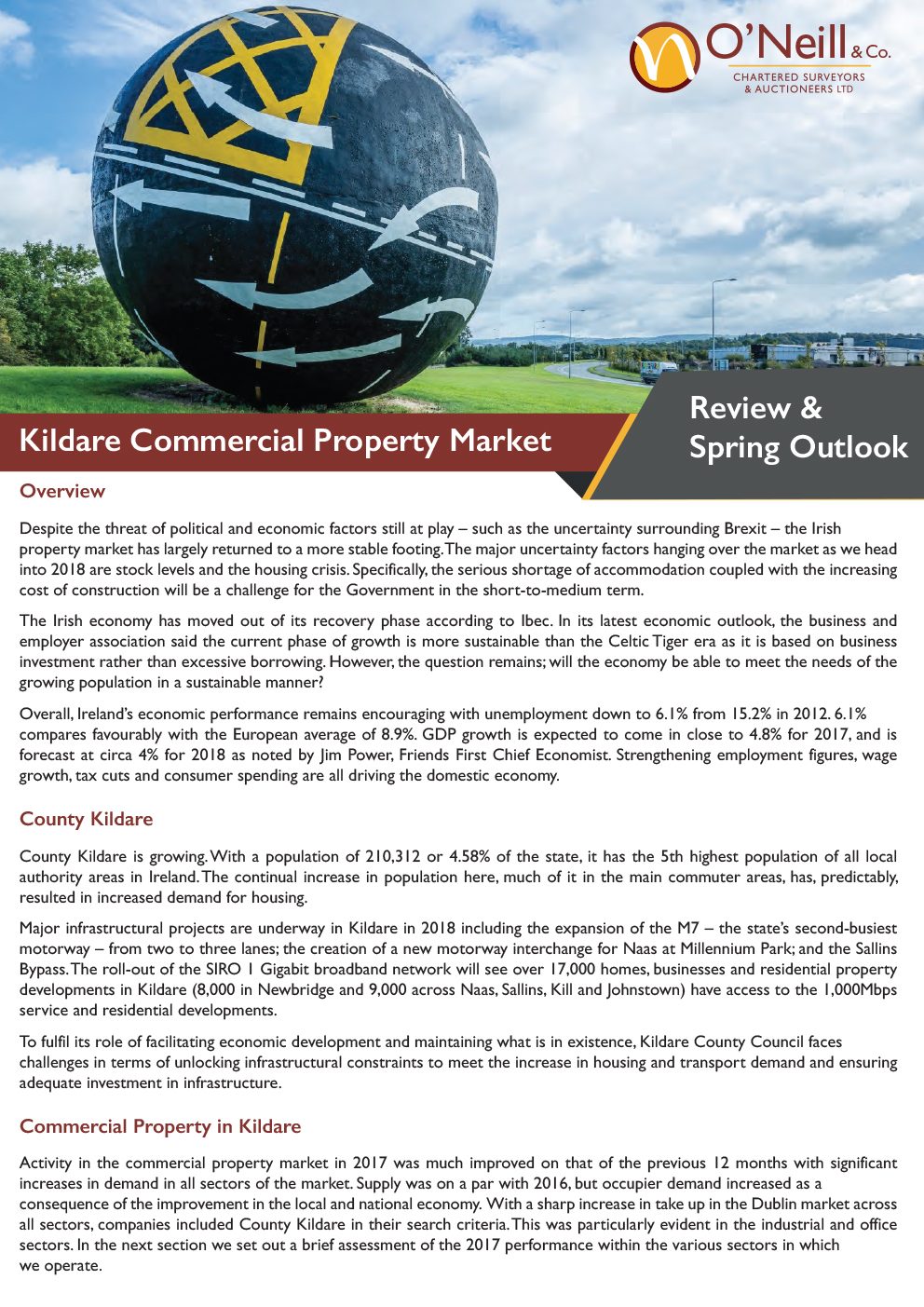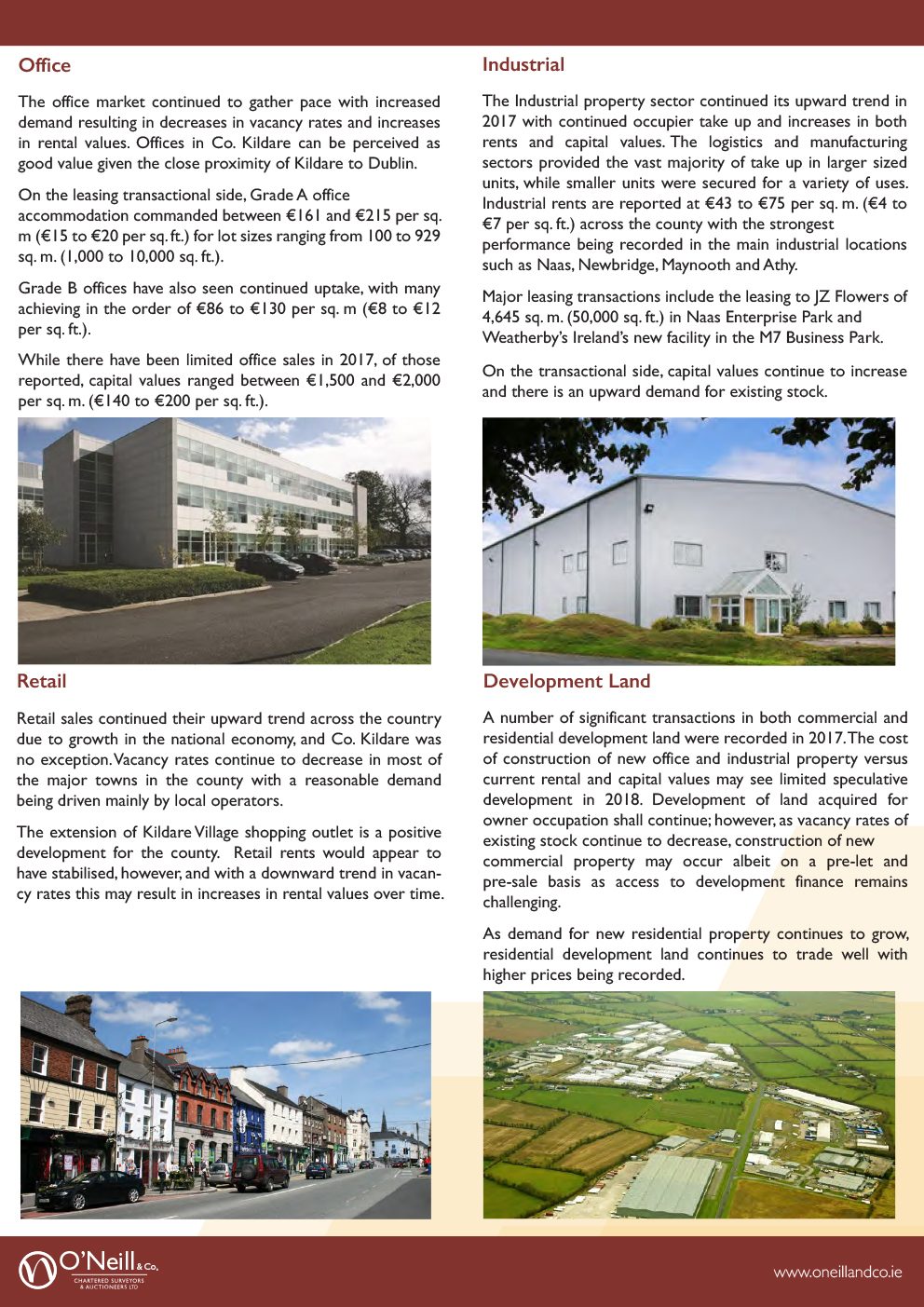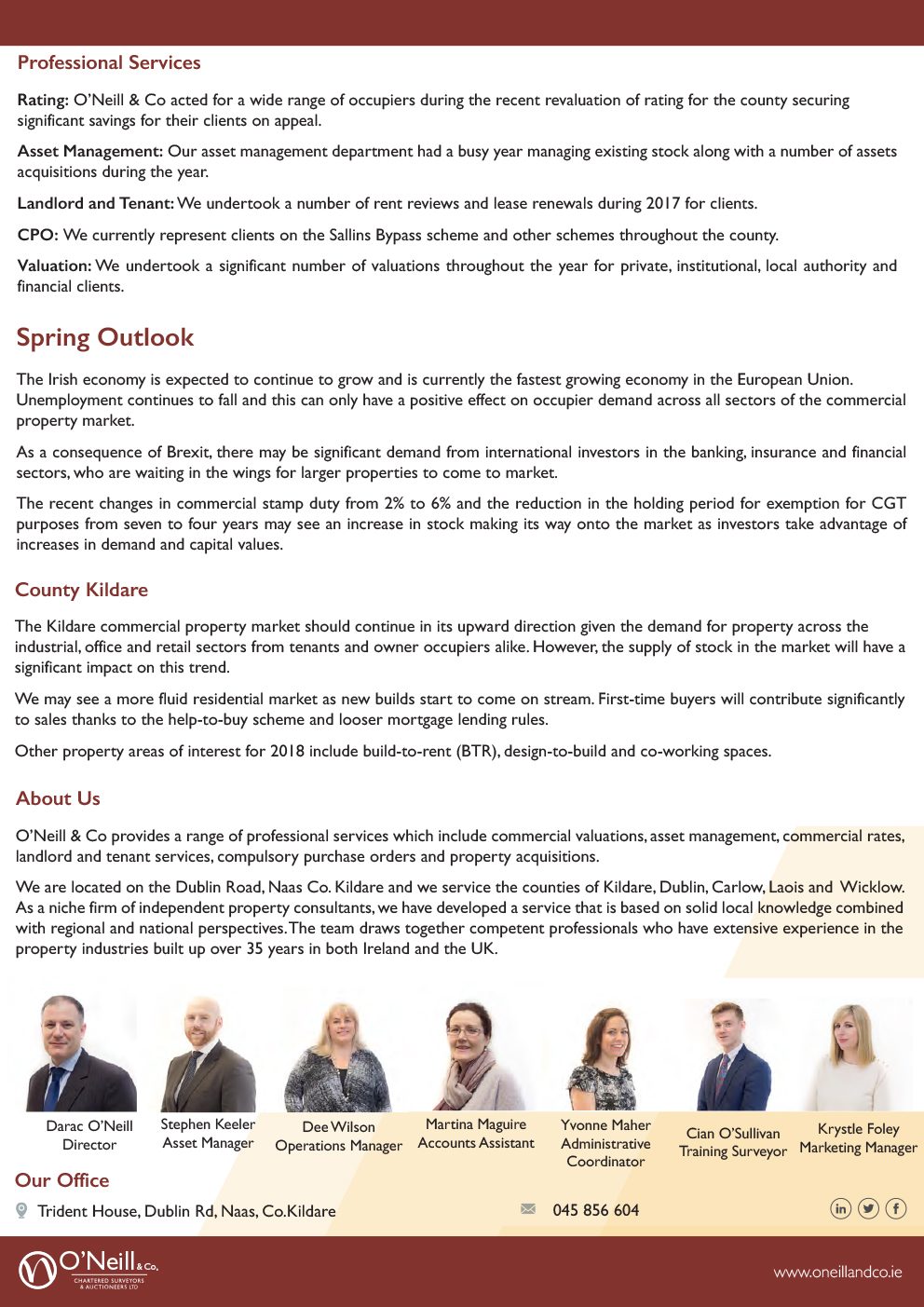A Guide to Commercial Leases & Lease Renewal
Put simply, a commercial lease is a legally binding agreement between landlord and tenant.
A commercial lease requires careful consideration by both parties; getting professional advice is crucial. A Chartered Surveyor is ideally placed to advise either landlord or tenant in what can be a big financial commitment for businesses.
Before entering a commercial lease, you must allocate time and effort to determine your requirements. It is advisable to seek legal advice on the commercial lease before signing; you should fully understand the consequences of the contractual obligations therein.
A business lease could be as short as 6 months, or as long as 25 years.
Unless stipulated, shorter lease terms generally do not confer tenancy renewal rights to tenants, whereas longer terms (usually 5 years or more) will confer tenancy renewal rights under the Landlord and Tenant Act 1980.
If an agreement cannot be reached between the landlord and tenant over the right of a tenancy renewal, the matter can be referred to the courts.
Advice for landlords:
If a landlord does not want to renew the lease and the tenant hasn’t renounced his or her right to renew, the following steps should be taken:
- Give prior notice no less than six months before lease expiry and within 12 months of lease expiry.
- This notice should include the grounds on which you are refusing to renew and the date on which you would like the tenancy to terminate.
Should the refusal to renew make it to the courts because of a failure to agree, you, as landlord, need to be able to show one of the following:
- Substantial breach of the current lease terms by the tenant.
- Non-payment or persistent delays in paying rent.
- That you are offering alternative suitable accommodation to the tenant.
- That you require the property in order to develop it.
- That you require the premises for the operation of your own business.
Advice for tenants:
- You have the right to renew your tenancy except when you have renounced your rights to renew prior to or during the lease term. To renounce your rights to renew, having taken independent legal advice, you must sign a deed of renunciation as part of your original lease – also known as ‘contracting out’ – which renounces all your rights under the Act.
The Civil Law Act 2008 covers the type of business eligible for contracting out. Previously it was restricted to office use only. Since the 2008 Act, retail, industrial, and other business sections are eligible.
You might be wondering why a tenant would contract out of a lease agreement. In fact, in the majority of cases, it is the landlord who proposes the contracting out. Say he or she wants to redevelop the building or sell it, they need to know the tenant won’t pursue his or her rights to renew the lease.
Commercial leases are a complicated area and if you are a landlord or tenant getting the correct advice is essential. Get advice from an experienced chartered surveyor familiar with commercial leases. O’Neill and Co. Call us on 045 856604.
Read a related article on Commercial Assignments & Sublease Agreements
2017 Commercial Property Report
Here’s our take on last year and our hopes for this year when it comes to property. We focus on Co. Kildare and surrounding counties but with an eye on the national context. Though we touch on all types of property, the emphasis, as you would expect, is on our specialism – commercial property”.



Getting the most from your commercial lease – Part 1
We talked last time about making the decision on whether to lease or buy your commercial property. Read the blog here if you missed it. If you choose to lease, you need to be aware that the lease is a legal contract. In Part I of a two-part blog, we look at setting the rent, rent reviews and the term of the lease.
What is a lease?
A lease is a legal contract between a tenant and a landlord setting out each party’s rights and legal obligations when it comes to the property in question. Yes, it is a binding legal document and, as such, should not be entered into lightly.
Commercial eases are not always straightforward agreements between an owner and a tenant. Consider the case where an investor owns the freehold of the building and leases it to a tenant. A second tenant may take an assignment of the lease from the original tenant, taking on the original tenant’s rights. That assignee may further lease the building or part of it – in other words sub-let it. So you can see how it can get complicated.
Setting the rent
The expertise of a chartered surveyor, preferably a local expert, is vital in negotiating the rent. He or she knows the specific market conditions at play and any local peculiarities that may give you (tenant or landlord) the upper hand. Tenants may be able to negotiate a rent-free period – again, your chartered surveyor will be able to advise you on whether that would be reasonable. While conditions are improving, commercial rents are still considered to be from 13% (for office space) to 63% (industrial space) behind 2007 levels.
Bargaining power
A tenant’s negotiating power depends on where he or she is in the chain. If a tenant is entering into an agreement directly with a landlord, say, the two parties can negotiate terms. If he or she is sub-letting, they will have to accept the terms already agreed in the original lease, unless they manage to agree changes directly with the freeholder. These amendments are contained in what is called a Deed of Rectification.
With a new lease, your bargaining position really depends on the state of the property market. This is where the advice of your chartered surveyor will be invaluable.
Term of the lease
If you are a tenant and are just starting out in business or going through flux, go for a shorter term commercial lease (say one to two years). In the case of longer leases, there should be provision for rent reviews – typically every three or five years. Rent reviews are a thorny subject – more on that later.
It is important to point out that the tenant will be liable for the rent, rates and other costs included in the contract for the full term of the lease, whether or not they are trading, unless of course they assign the lease to someone else. Be aware that a tenant can only sub-let if there is a provision for it in the original lease.
Rent reviews
New or existing commercial leases will set out the pattern of rent reviews, usually at three- or five-year intervals. Since February 2010, rent can be negotiated down at a rent review. However, if you are sub-letting based a pre-2010 lease you will find that a ‘new’ rent cannot legally go below what is currently being paid regardless of the market conditions at play.
Remember that where your lease began post 2010, your rent could well have been set at an historically low level, so expect your landlord to increase it to what is reflected in the current market at the earliest opportunity – a much more competitive space because of the shortage of new commercial space and recovery-fuelled demand.
Part II of the blog covers security of tenure, repair and upkeep and use of the building. Click here to read it.
We cannot stress how important it is that both tenant and landlord be rigorous about making sure they understand the terms of the lease and their potential ramifications.
O’Neill & Co is at your disposal for the full range of landlord and tenant issues, including advice on leases, landlord and tenant law, specialist rent review advice and negotiation of rent at review, by agreement or arbitration. We specialise in offering strategic advice on the implementation of rent reviews in multi-tenanted buildings and shopping centres.
Don’t hesitate to call us with your question on 045 856604, whether you are a tenant or landlord.